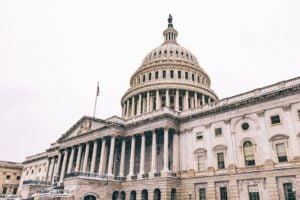
Surprise billing has been a long-time issue and continues to persist at insurance becomes increasingly complicated. Post-treatment patients are often shocked to learn that a doctor that they worked within their normal office or hospital setting isn’t covered by insurance – which means they suddenly have a massive bill to pay. Now, eight representatives are banning together to pass the bipartisan Protecting People from Surprise Medical Bills Act.
Surprise Billing: A Quick Review
As an anesthesiologist, your understanding of billing focuses on your point of view as a provider. Although you’re sometimes a patient yourself, you mostly don’t think about whether you are “in-network” for a certain patient or not – you simply provide services as needed. Here’s a quick review on surprise billing from the patient’s view.
Surprise billing is when a patient receives a bill for the difference between an out-of-network provider’s fee and the amount that insurance will cover (after co-pays and deductibles). These bills are often shocking to patients, who assume that facility-based providers are in-network since their surgeon and/or hospital are.
Why This Matters to Anesthesiologists
Anesthesiology falls into the category of services where surprise billing often occurs and is an issue for both patients and providers. Balkanized payor systems often give no warning to either side that any given provider might be out of network for any given patient. Patients receiving surgery, in particular, are typically focused on their outcome and don’t consider whether everyone on their surgical team is in-network besides their surgeon. A recent study found that only 10% of claims filed by physician anesthesiologists fall into the surprise billing category, but it’s still important that this small number of cases is addressed.
Deep Dive: The New Surprise Billing Legislation
The Primary Goal
The main idea driving this bill is that patients should be protected from unanticipated bills and only be responsible for in-network out-of-pocket expenses in emergency and unexpected settings.
This would be accomplished by prohibiting balance billing for certain categories of services where surprise billing commonly occurs. To supplement the cost, initial payment from insurers would be required based on the median in-network rates.
Patients should be protected from unanticipated medical bills.
The Detailed Proposal
The proposed legislation combines ideas from multiple federal bills to implement a “billing regulation” approach to protect patients. Since the bill is still in developmental stages, there are still some details that need to be fully fleshed out, but here are the details as they currently stand:
The bill covers all commercially insured individuals regardless of plan type or whether they are fully or self-insured. It defines surprise bills as any balance billing that occurs as a result of:

- Any type of out-of-network emergency service covering both the provider and the facility
- Post-stabilization services at an out-of-network facility until the patient can be safely transferred to an in-network facility and is offered transportation
- Any out-of-network services completed at an in-network facility (including imaging and labs ordered by an in-network provider)
The proposed bill covers all commercially insured individuals.
The legislation protects patients by:
- Requiring insurers to treat out-of-network services as though they are in-network for the patient. This distinction would determine the price for the patient based on cost-sharing, deductibles, and out-of-pocket limits.
- Prohibiting out-of-network providers from sending balance bills to patients.
- Determining how much insurers must pay to the out-of-network providers on behalf of the patient.
How Payments Would Work
One draft of the bill explains that the insurer is responsible for the difference in payment instead of the patient. This means that the final payment amount would be negotiated between the physician, hospital, and insurer. The insurer would be required to pay the median in-network rate under the health plan minus the patient’s payment relative to in-network cost-sharing. However, the language surrounding “median in-network rate” is very ambiguous and will likely require further clarification from various agencies.
Ultimately, the final payment amount for out-of-network services would have to be negotiated between the provider, hospital, and insurer.
Another draft includes a proposition that allows insurers to dispute the payment amount through arbitration or an “independent dispute resolution” (IDR). The IDR process would follow “final-offer” arbitration practices. The insurer and provider would each be allowed to submit a payment offer to an independent arbitrator, who will pick between the two. The idea is that the risk of the arbitrator choosing the opposition’s offer entices both sides to submit reasonable offers or settle before going through the IDR process. This style of resolution has already been implemented in New York’s surprise billing law.
What Do Other Leaders Think?
For a better understanding of how this legislation impacts anesthesiologists, we turn to the industry-leading group, the American Society of Anesthesiologists, for their opinion on surprise billing.
Opinion: American Society of Anesthesiologists
The American Society of Anesthesiologists (ASA) supports the Protecting People from Surprise Medical Bills Act. They encourage commonsense solutions that support fair payments while keeping patients out of the middle. Specifically, they urge Congress to:

- Protect patients from unanticipated medical bills
- Ensure enforceable network standards to help fix the problem
- Identify fair solutions to ensure appropriate payment to providers
- Utilize an IDR process to settle payment disputes between insurers and providers
- Look to New York state as a current functioning model of how this bill would impact healthcare organizations
ASA supports the Protecting People from Surprise Medical Bills Act.
What We Think: A Fusion Anesthesia Perspective
While no provider wants to harm their patients, out of network billing has historically been one of the only levers an independent group has in negotiating with an insurance company. Traditionally, out of network billing would occur if an insurer was unwilling to offer a contract that was reasonable and sustainable for an anesthesia group.
There have been a few states where arbitration has occurred in an attempt to force reasonable contract negotiations. Unfortunately, these processes are generally cost-prohibitive for most anesthesia groups, especially on a case by case basis with different insurance providers. These disputes typically end with the insurer coming out ahead with no real viable resolution for the independent group. This further forces down reimbursement rates and leaves groups looking for alternate sources of reimbursement (stipends) to sustain their practice.
Forcing providers to take contracts that are not sustainable will lead to further industry consolidation. Independent providers will be forced to seek shelter within large practices that have significant leverage or within the hospital system itself. By joining a hospital group, the financial burden of maintaining provider salaries at market rate falls on the overall negotiating ability of the hospital with insurers – instead of the individual group.
At the end of the day, every one of these legislative proposals will impact the balance of power between physicians, facilities, and insurers. Everyone agrees that the patient should be protected but the legislative mechanism for negotiating rates needs to be carefully crafted to not shift traditional market forces too far in one direction.
Surprise Medical Billing Resources
Since this bill is still in the proposal stages, there are many components still being debated and interpreted. It will likely take some time for the final bill to be passed or rejected. Below are some useful resources to help you stay up to date:
- ASA Overview on Surprise Medical Bills / Out-of-Network Payment
- ASA’s Out-of-Network Payment FAQs
- Legislation Overview and Interpretation from Health Affairs
- Press Release from Rep. Raul Ruiz (including a summary of the proposed bill)
If you’re worried about the impact that surprise billing legislation could have on your take-home, contact us to see how we can increase practice revenue by 5-15%.

